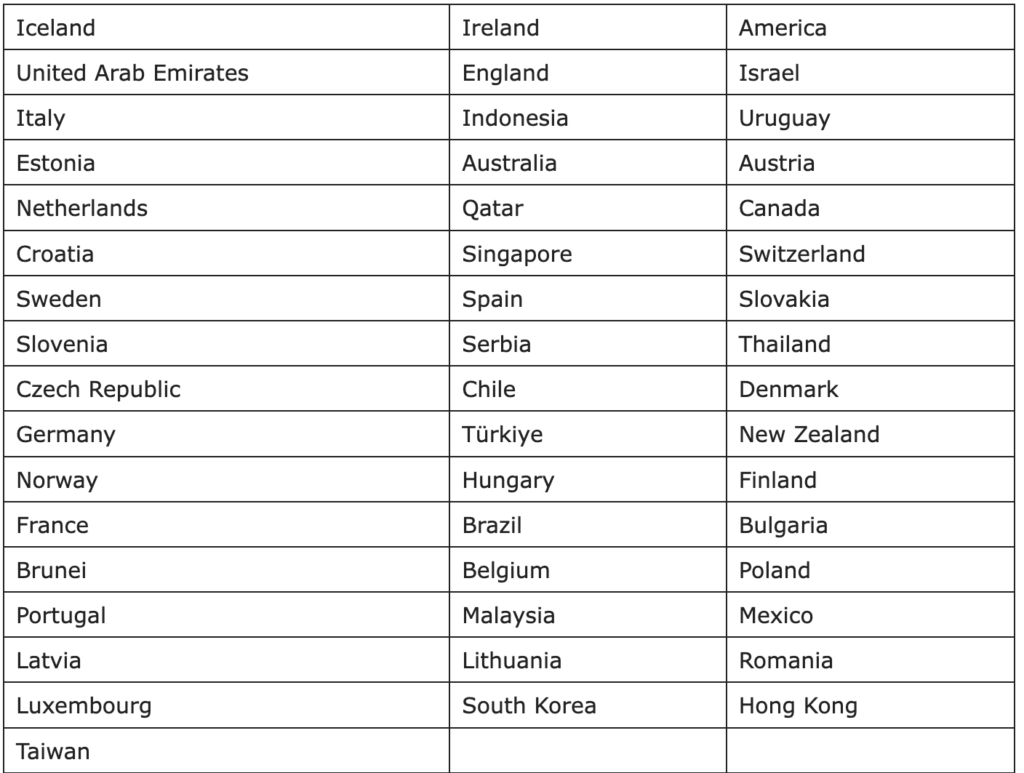Do you ever wish you could explore Japan while getting paid? You can do that through different visas! Staying and living in Japan requires a Visa, but not every visa is one size fits all. Each one has different pros and cons. The main differences are the limits on how much you can work, how long you can stay in the country, and what job you can do. Look at the most popular work visas to see what works best for you!
Ready to take the next step? Submit your inquiry and our team will respond promptly.
Student Visa
The Student Visa is for people enrolled in a full-time academic program at a Japanese institution. This could be a language school, university, etc. People on a student visa are only eligible to work a maximum of 28 hours a week on average during active semesters. While they can work full-time during holidays, student visa holders can only work jobs that do not interfere with their studies. Jobs that generally do not interfere with studies in Japan are part-time jobs; the service industry and retail work are popular among students. While the student visa is not ideal for making a lot of money in Japan, it is one of the longest-lasting visas, depending on how long you are in school.
Working Holiday Visa
The Working Holiday Visa is for people looking to travel and support their travel expenses while on their trip. This visa is only extended to younger people, and the maximum age for this visa in Japan is 30 years. This visa lasts for a year at most; however, depending on your nationality, there is a possibility for an extension beyond that. Working Holiday Visa jobs are part-time, allowing people to work up to 48 hours per week anywhere! That being said, this visa prioritizes the “Holiday” portion. While you can work with this visa, the focus is mainly on traveling and experiencing the culture of Japan!
Digital Nomad Visa
The Digital Nomad Visa is a new addition to Japan’s working visa selection, which only came into effect in March of 2024! This visa is unique because it is specifically for remote workers for companies outside of Japan. This visa prohibits work for Japanese companies or freelance work within Japan, so your working hours depend on your foreign home company. This visa lasts 6 months, and given its recent introduction, there are no possibilities for an extension. If you want a more in-depth look at this visa, check out The Ultimate Guide.
Visa Logistics
All visas require a valid passport, but depending on the visa you’re applying for, there are some differences in applications after that point!
Applying for a Student Visa
While you can apply for a Student Visa independently, researching schools, compiling everything, and sending all your documents or information can sometimes be confusing or stressful. Using a free program like Coto School Finder can help you with translations and double-checking your documents!
Applying for a Work/Holiday Visa
To get a Working Holiday Visa your first step is to check the Ministry Of Foreign Affairs as different countries have different Visa qualifications. Generally, you will need a return plane ticket, proof of funds, and meeting the age requirements. You can apply officially through your country’s embassy or consulate general if you meet all the qualifications.

Applying for a Digital Nomad Visa
For a Digital Nomad Visa, you must already be employed by a non-Japanese company. You again need to check if your home country is applicable (see above). If your country is connected to the program, you are ready to move on to the next items! You will need an annual income of at least 10 million JPY, health insurance with coverage of at least 10 million JPY, and a written itinerary of what you plan to do during your visit that you can fill out here.
Picking Your Job
It’s always smart to start a job search before you need it but once your application for the Student Visa or Work Holiday Visa gets approved it is time to start the hunt officially!
General Job Requirements
Getting a job, like everywhere, depends on the individual and the company. However, there are some general things that you will need to work in Japan. You will need to be proficient in Japanese (JLPT N2 at least), have a college degree or sufficient experience in the field, and have a CV or resume in English and Japanese. Need some help? Here is how to make a Japanese resume and get some tips for interviews!
Where to look
Since we live in the internet age, there are many foreigner-friendly job posting websites. Put in what you’re looking for or experience, and start your hunt!
Looking for a comprehensive guide to navigating the part-time job market? Check out this blog
Some websites to start with Indeed, LinkedIn, Daijob, Gaijinpot
Stay Connected
One of the best things about working in Japan is the versatility of workspaces for hybrid and remote workers. Around Japan, there are different coworking spaces to help you connect to your job and other working professionals in the area!

Diagonal Run
- Address: Chuo-Ku
- Hours: 9:00-20:00 (weekdays only)
- Price: 660 yen for 1 hour or 18,700 yen per month

Case
- Address: Shinjuku
- Hours: 10:00-18:00
- Price: 1,000 yen for 1-2 hours or 27,500 yen per month

Mov
- Address: Shibuya
- Hours: 8:50-22:00
- Price: Open Lounge: 1,100 yen per hour or 23,400 per month

Regus
- Address: 30+ locations across Tokyo!
- Hours: Location Dependent
- Price: Location Dependent, 27,000 yen to 106,500 per month
Phrases That Might Be Useful…
- 私はリモートで仕事をしています。Watashi wa rimōto de shigoto o shite imasu. – I work remotely.
- 私は海外の会社で働いています。 Watashi wa kaigai no kaisha de hataraite imasu. – I work for a company overseas.
- インターネットが使える場所を探しているんだ。 Intānetto ga tsukaeru basho o sagashite iru nda. I’m looking for a place with internet access.
- 短期リースは可能ですか?Tanki rīsu wa kanōdesu ka? Is a short-term lease possible?
